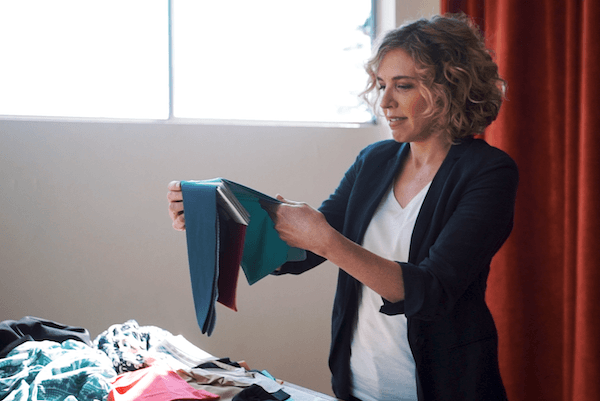
Founder of leak-proof underwear brand Modibodi Kristy Chong. Image: supplied.
Leak-proof undies? It was a product that once seemed a pipe dream.
But now such pee and period proof undies are readily available in shops, even supermarkets.
That’s largely thanks to Kristy Chong, who took on the idea around nine years ago while training for a marathon after giving birth to her second child and dealing with “unmentionable” leaks. She asked herself the question: why haven’t underwear brands solved the leakage problem?
Chong’s decision to solve the problem herself — innovating and testing different fabrics before launching Modibodi — saw her creating an entirely new category of product.
And now the move has paid off big time, with Swedish company Essity purchasing the Australian business in a deal worth a massive $140 million.
Directly addressing the “unmentionable” leaks Chong had personally experienced has resulted in an Australian entrepreneurial success story, and once again shows the value of innovating and investing in ideas to improve women’s health and wellbeing.
But it’s a business that not so long ago, people still didn’t really want to talk about.
In 2016, Chong was filmed pitching the idea for a Shark Tank segment but later found out her pitch had been cut, just one week prior to the episode being due to air.
In 2020, Modibodi’s ads showing period blood as red, as opposed to the blue that is typically shown in ads for pads and tampons, was banned from Facebook. Not once, but three times.
Meanwhile, when it came to investment, Chong found that many male investors (and the majority of such investors are still male) struggled to understand how the product worked.
Still, Chong and her team have pressed on with educating the market on the potential for their products.
In the past couple of years, ModiBodi has launched partnerships with massive brands like PUMA. It has branched out into other forms of apparel, including swimwear, and it’s become a strong and powerful advocate for addressing sustainability and period poverty.

From $50,000 in first year to $56.7 million
Back in 2013, Chong started researching and then testing new textiles and fabrics from all over the world, before developing the patented technology behind the period and pee-proof underwear ModiBodi initially launched.
She took the scientific approach — consulting with chemical textile engineers and spending around $20,000 from concept to the final prototype and then finding a manufacturer willing to do a run of 500 garments as a start.
The brand achieved $50,000 in revenue within its first year. Last year, sales were around $56.7 million.
Modibodi’s new owner Essity (which also owns Tena) described the business as having “all the qualities we are looking for,” including leading market position, sustainability credentials and excellent e-commerce and marketing capabilities.
In the statement from Essity announcing the sale, Chong said the new owner can now provide the “expertise and capital” to drive the brand into its next phase of growth.
Essity predicts the growth of leakproof apparel to be more than 20% each year, for the next five years.
When we interviewed Chong back in 2019 about Modibodi’s rapid success, she noted the role startups can play in stepping in to fill a real need in the market that established businesses have long missed.
“The time really is ripe for women like myself and others to change things, people who can take on the risk,” she said.
This is now, finally, a category of product that’s mentionable.
This article was first published by Women’s Agenda.
Handpicked for you

Modibodi acquired by Swedish multinational Essity for $140 million



COMMENTS
SmartCompany is committed to hosting lively discussions. Help us keep the conversation useful, interesting and welcoming. We aim to publish comments quickly in the interest of promoting robust conversation, but we’re a small team and we deploy filters to protect against legal risk. Occasionally your comment may be held up while it is being reviewed, but we’re working as fast as we can to keep the conversation rolling.
The SmartCompany comment section is members-only content. Please subscribe to leave a comment.
The SmartCompany comment section is members-only content. Please login to leave a comment.